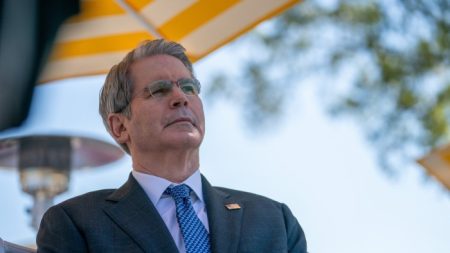Unlock the US Election Countdown newsletter for free
The stories that matter on money and politics in the race for the White House
A US judge has blocked the Federal Trade Commission’s ban on non-compete agreements, saying the regulator lacked the authority to stop agreements that bar employees from getting new jobs at rival firms.
The rule “is arbitrary and capricious because it is unreasonably overbroad without a reasonable explanation”, US District Judge Ada Brown in the Northern District of Texas wrote in the decision on Tuesday, concluding that the regulator “lacks statutory authority” to issue the rule.
FTC spokesperson Victoria Graham said in a statement that the agency was “disappointed” by the decision but vowed to “keep fighting to stop non-competes”.
“We are seriously considering a potential appeal, and today’s decision does not prevent the FTC from addressing non-competes through case-by-case enforcement actions,” Graham said.
The FTC, which enforces antitrust laws and regulates competition, voted 3-2 to issue the rule in April. Set to take effect in September, it would have invalidated clauses preventing workers from working for one of their employers’ competitors or launching a competing business for a certain time period or in particular regions, affecting industries from healthcare and engineering to finance.
The agency said the rule would increase competition, limit employers’ ability to suppress wages and help spark innovation. About 30mn US workers, 20 per cent of the country’s workforce, are bound by non-compete clauses, the FTC estimated at the time.
Business groups challenged the FTC over the ban soon after it was published, saying they could not protect trade secrets without non-competes. They also argued the FTC had gone far beyond its legal authority in issuing such a wide-reaching rule that could invalidate millions of contracts.
Courts have reached mixed decisions on it: a court in Florida had issued a limited preliminary injunction against it, while a Pennsylvania judge declined to do the same, finding the FTC had reasonably concluded that the agreements were almost never justified.
The Texas lawsuit stemmed from a challenge filed by a local business, Ryan LLC, which was later joined by several business groups, including the US Chamber of Commerce and the Business Roundtable.
Brown, the judge in the Texas case, who was appointed by then-president Donald Trump in 2019, wrote that the FTC failed to justify why it had banned virtually all non-competes instead of “instead of targeting specific, harmful non-competes”.
“With this rule, the FTC assumed vast authority over the employment relationship and over the US economy,” Eugene Scalia, a former US labour secretary in the Trump administration and partner at Gibson Dunn who represented the plaintiffs, said after the decision. “But Congress never gave it that power, and the court applied familiar, basic legal principles to throw the rule out.”
Read the full article here














